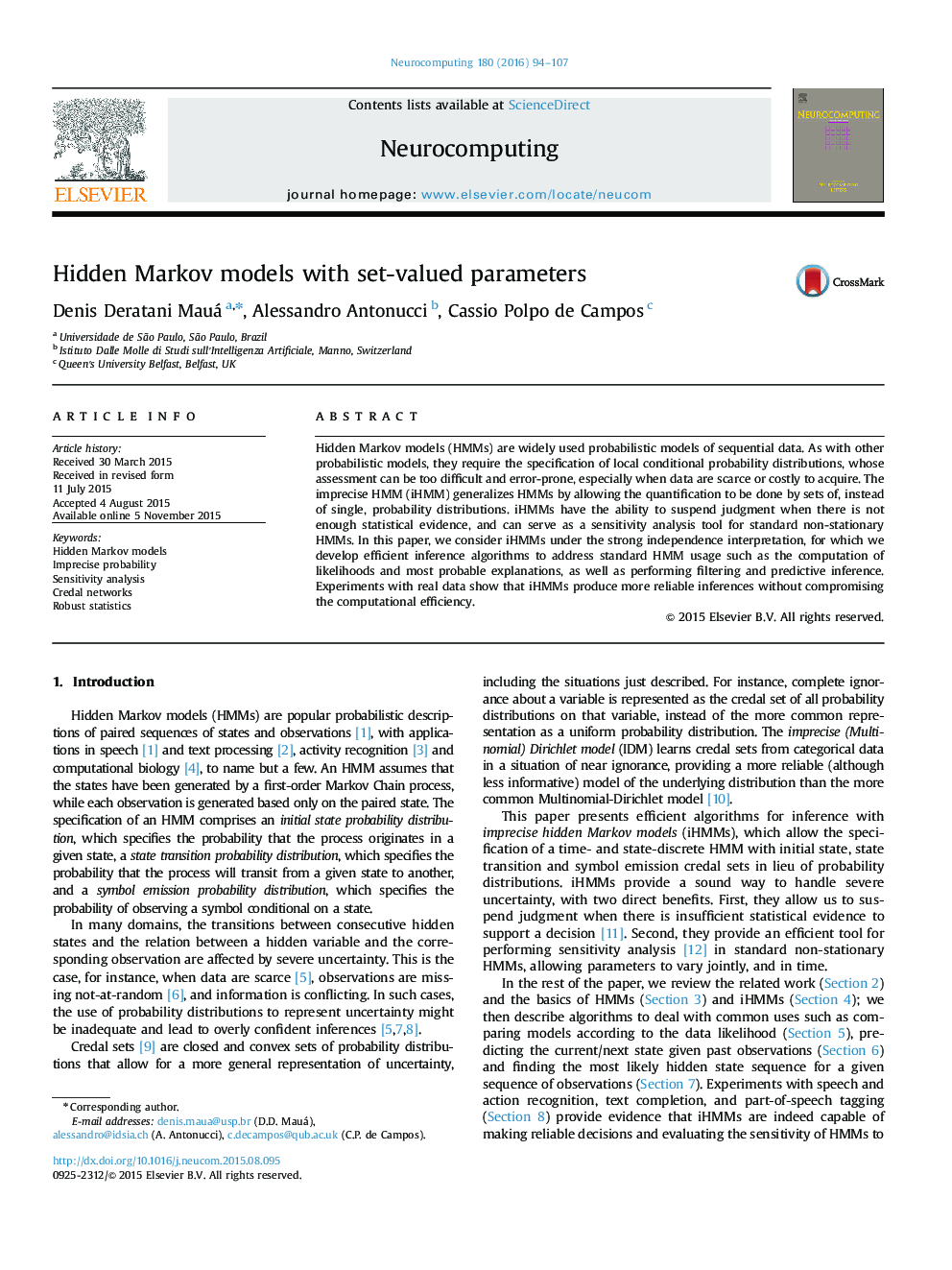| Article ID | Journal | Published Year | Pages | File Type |
|---|---|---|---|---|
| 408632 | Neurocomputing | 2016 | 14 Pages |
Hidden Markov models (HMMs) are widely used probabilistic models of sequential data. As with other probabilistic models, they require the specification of local conditional probability distributions, whose assessment can be too difficult and error-prone, especially when data are scarce or costly to acquire. The imprecise HMM (iHMM) generalizes HMMs by allowing the quantification to be done by sets of, instead of single, probability distributions. iHMMs have the ability to suspend judgment when there is not enough statistical evidence, and can serve as a sensitivity analysis tool for standard non-stationary HMMs. In this paper, we consider iHMMs under the strong independence interpretation, for which we develop efficient inference algorithms to address standard HMM usage such as the computation of likelihoods and most probable explanations, as well as performing filtering and predictive inference. Experiments with real data show that iHMMs produce more reliable inferences without compromising the computational efficiency.
